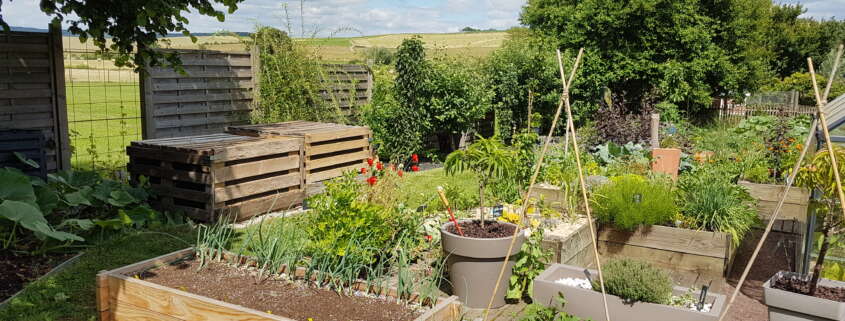Compost
Compost is found in legislation. The law is the law 🥴!
“As of January 1, 2024, in accordance with European law and the anti-waste law of 2020, the sorting of bio-waste is generalized and concerns all professionals and individuals. »
Well… You’ll have to make your own compost!
Compost and waste?
We can start there, what is the definition of compost?
It is an organic amendment produced from the decomposition of materials such as kitchen waste, garden waste, dead leaves and other plant debris. The law aims to avoid finding these peelings and leftover meals in the trash, so we are right in the middle of it!
But before throwing everything on the green waste pile, we can start by avoiding waste. The less you throw away, the less we fill the bins, logic!
Today, bio-waste still represents a third of the content of French people’s residual trash. Basically, there are ways to do much better!
It’s quite a deposit that it would be more judicious to transform “at the source” into organic matter. The law provides that all individuals have a practical solution for sorting their bio-waste at home from January 1, 2024.
Advantageous!
In the garden, waste can be recycled and ultimately, it is very useful for the gardener!The composting process involves biological decomposition by microorganisms such as bacteria, fungi and insects, under the action of air and moisture.And it’s a good plan, the benefits of compost are multiple. It must be well ripe, then you can use it in the garden. It enriches the soil with essential nutrients, improves soil structure, promotes water retention and reduces the need to use fertilizers. And of course, that’s the goal, while the plant waste ends up in the composter, it means fewer trips to the recycling center. And what’s more, you limit the purchase of food for the plants in the garden.
Manual ?
The composting process can be carried out on a small scale in a domestic composter at the bottom of the garden. On a larger scale, this happens in municipal composting facilities.In both cases, we will properly mix the different types of organic matter in order to ensure adequate aeration and maintain a balance between materials rich in carbon (such as dead leaves) and those rich in nitrogen (such as kitchen waste). . The goal is to find the right balance to obtain quality compost.
Step by step
– It all starts with Choosing a suitable location. Put on your boots and go for a walk in the garden. Find a shaded spot on the ground. If it’s a little hidden, it’s still better.- For the container, you can use a ready-to-use compost bin or mark off an area in your garden to simply make a rotting pit. The rotting pit allows all plant waste to be piled up in bulk. It’s not really by the book, but it also works, it takes more time.- Make sure that the chosen container has good ventilation to promote the decomposition process.- Organic materials that can be composted include kitchen waste such as fruit and vegetable peelings, coffee grounds, egg shells, as well as garden waste such as dead leaves, small branches and grass clippings. Above all, do not put meat, dairy products, fats or pet feces.Also avoid diseased or seeded plants.- For quality compost, balance materials rich in carbon (such as dead leaves, paper, cardboard, branches) with those rich in nitrogen (such as kitchen waste, fresh grass). This helps maintain an optimal carbon to nitrogen ratio for decomposition.- Shred or cut garden waste and larger organic matter into small pieces to speed up the decomposition process. The rule is simple, the smaller the pieces, the faster they compost.- Mix everything regularly to promote aeration and accelerate the decomposition process. Some composters have built-in aeration devices. But there, it costs a little more money!- Keep the compost pile moist but not soggy. Moisture promotes decomposition, but excess water can cause problems such as odor.- Be patient! Composting can take anywhere from a few weeks to a few months, depending on conditions. Continue to add waste regularly.- When the compost has a texture similar to potting soil and an earthy smell, it is ready for use in the garden.
Use ?
If you have a vegetable garden, all you need to do is spread the compost in winter and incorporate it into the soil. You can also mix this compost with the vegetable plots you have. In general, the earth settles and it is often necessary to add material at the beginning of the year.If you grow squash and pumpkins, your compost will be essential to have rich soil and facilitate the development of your future crops.And if you still have doubts or technical questions, don’t hesitate to go to my YouTube channel, there are video answers. Otherwise, you can ask me via social networks!Happy composting everyone!




Leave a Reply
Want to join the discussion?Feel free to contribute!